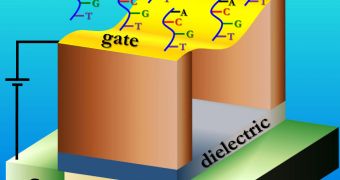Personalized medicine may have just been brought one step closer to reality, thanks to the development of a new, ultra-sensitive biosensor. Researchers at the Purdue University, in the United States, say that the device could also be used to detect the earliest stages of cancer.
According to its developers, the biosensor is several hundred times more sensitive than any other device in its class, primarily because it combines two different types of sensors into a single instrument.
Purdue University professor of electrical and computer engineering, Muhammad A. Alam, was the leader of the group that developed the instrument. Details of its construction were published in the May 14 issue of the esteemed journal Proceedings of the National Academy of Sciences (PNAS).
Authors include Ankit Jain, a Purdue graduate student, and Pradeep R. Nair, a former PhD student at the university who now holds an appointment as a faculty member at the Indian Institute of Technology, in Bombay.
The new device is called the Flexure-FET biosensor. Its main components are a mechanical and an electrical sensor. The former detects molecules based on either their mass or their size, while the latter identifies them by their electrical charge.
This means that the biosensor can detect both charged and neutral biomolecules, a feat that considerably extends its range of potential uses. “Individually, both of these types of biosensors have limited sensitivity, but when you combine the two you get something that is better than either,” Alam says.
In personalized medicine, the new instrument could be used to create inventories of each patient's proteins and DNA, making it easier for doctors to prescribe effective treatments, as well as monitor how each individual is progressing.
The research was sponsored by the US Department of Defense (DOD), the Department of Energy, the National Institutes of Health-PRISM center at Purdue and the Semiconductor Research Consortium, at the Massachusetts Institute of Technology, in Cambridge.
The Purdue team now plans to develop its device even further, after submitting a patent request for the Flexure-FET biosensor.

 14 DAY TRIAL //
14 DAY TRIAL //